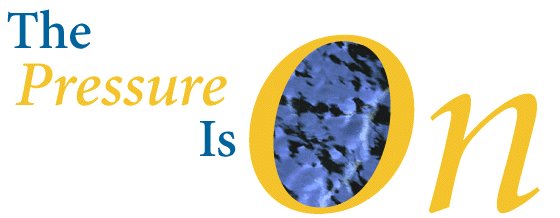Interesting title for a blog designed to enhance and help building a base of long-term, repeat, profitable clients - Yes?
No?
Wait. What?
Observe your own thoughts? What kind of nonsense is this?
How often do you really sit down and take the time to observe what you are thinking about? We know you are a genius - or near genius. You make rapid decisions, split second decisions based upon instinct and experience and knowledge.
Faulty Thoughts?
But have you considered, that some of your thoughts are actually - get this - faulty? Did you ever consider that some of the thoughts you have are from beliefs that your parents, your teachers, your relatives, or religious figures may have passed onto you? And these beliefs are operating underneath your conscious - just under the radar - hard to detect - but are filtering out things that are true (potentially helpful to you) yet you can't see them?
Our beliefs serve us well in most cases. They do filter out things that may not be pertinent to what we need. Or if they didn't we would be able to count the dots in the ceiling tiles in our office in a split second like Rain Man (Dustin Hoffman).
Self-Limiting Beliefs and Concepts
Yet there are self-limiting concepts that we acquired that may not be true for us that we have reinforced throughout the years by believing they were/are true, that really don't serve us well.
Let me give you a couple:
"I am not a good speaker."
"I am not good in front of clients."
"I cannot write well."
Okay. These are somewhat bland and not juicy, like, "I can never find a date." But those kind of beliefs get somewhat personal and this is not an Ann Landers (I know she has passed on) blog site.
But what thoughts do you have swirling around in your head to which you are viewing the world right now?
Are you a little less than confident? Are you a little unsure, unsteady, wobbly?
Rewire Your Thoughts
Observe your thoughts. Capture them in a journal. Ask where did I get this from? What evidence do I have that this is accurate? Rewire yourself. Rewrite the self-limiting thought patterns and design them into a more positive, self-affirming thought pattern. For example, taking from the above: "I am good in front of clients." Then go out and find books and articles and CDs on this subject and read and study how to become good in front of clients. Immerse yourself - flood your mind with the new ideas and strategies. And believe it or not, over time, you begin to put into practice these little ideas you have picked up along the way. And voila, you are now much better in front of clients.
Can it be that simple? Yes. It is that simple.
No?
Wait. What?
Observe your own thoughts? What kind of nonsense is this?
How often do you really sit down and take the time to observe what you are thinking about? We know you are a genius - or near genius. You make rapid decisions, split second decisions based upon instinct and experience and knowledge.
Faulty Thoughts?
But have you considered, that some of your thoughts are actually - get this - faulty? Did you ever consider that some of the thoughts you have are from beliefs that your parents, your teachers, your relatives, or religious figures may have passed onto you? And these beliefs are operating underneath your conscious - just under the radar - hard to detect - but are filtering out things that are true (potentially helpful to you) yet you can't see them?
Our beliefs serve us well in most cases. They do filter out things that may not be pertinent to what we need. Or if they didn't we would be able to count the dots in the ceiling tiles in our office in a split second like Rain Man (Dustin Hoffman).
Self-Limiting Beliefs and Concepts
Yet there are self-limiting concepts that we acquired that may not be true for us that we have reinforced throughout the years by believing they were/are true, that really don't serve us well.
Let me give you a couple:
"I am not a good speaker."
"I am not good in front of clients."
"I cannot write well."
Okay. These are somewhat bland and not juicy, like, "I can never find a date." But those kind of beliefs get somewhat personal and this is not an Ann Landers (I know she has passed on) blog site.
But what thoughts do you have swirling around in your head to which you are viewing the world right now?
Are you a little less than confident? Are you a little unsure, unsteady, wobbly?
Rewire Your Thoughts
Observe your thoughts. Capture them in a journal. Ask where did I get this from? What evidence do I have that this is accurate? Rewire yourself. Rewrite the self-limiting thought patterns and design them into a more positive, self-affirming thought pattern. For example, taking from the above: "I am good in front of clients." Then go out and find books and articles and CDs on this subject and read and study how to become good in front of clients. Immerse yourself - flood your mind with the new ideas and strategies. And believe it or not, over time, you begin to put into practice these little ideas you have picked up along the way. And voila, you are now much better in front of clients.
Can it be that simple? Yes. It is that simple.






















